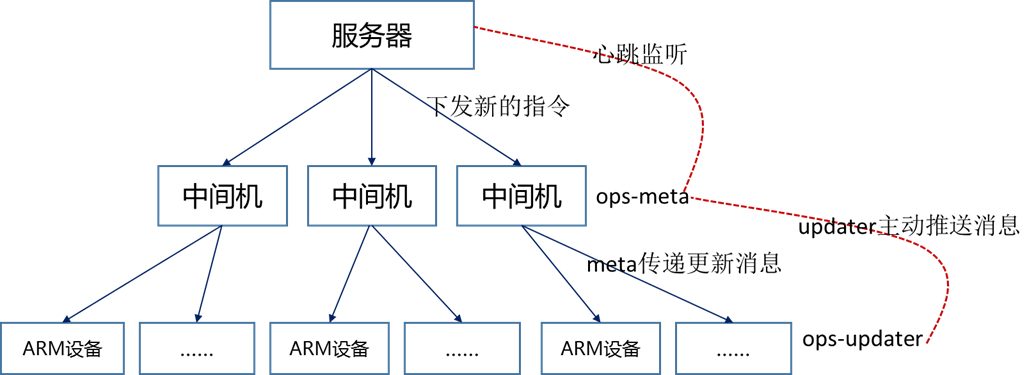1
2
3
4
5
6
7
8
9
10
11
12
13
14
15
16
17
18
19
20
21
22
23
24
25
26
27
28
29
30
31
32
33
34
35
36
37
38
39
40
41
42
43
44
45
46
47
48
49
50
51
52
53
54
55
56
57
58
59
60
61
62
63
64
65
66
67
68
69
70
71
72
73
74
75
76
77
78
79
80
81
82
83
84
85
86
87
88
89
90
91
92
93
94
95
96
97
98
99
100
101
102
103
104
105
106
107
108
109
110
111
112
113
114
115
116
117
118
119
120
121
122
123
124
125
126
127
128
129
130
131
132
133
134
135
136
137
138
139
140
141
142
143
144
145
146
147
148
149
150
151
152
153
154
155
156
157
158
159
160
161
162
163
164
165
166
167
168
| package main
import (
"encoding/binary"
"fmt"
"io"
"io/ioutil"
"log"
"net"
"os/exec"
"sync"
"syscall"
"unsafe"
"github.com/kr/pty"
"golang.org/x/crypto/ssh"
)
func main() {
config := &ssh.ServerConfig{
PasswordCallback: func(c ssh.ConnMetadata, pass []byte) (*ssh.Permissions, error) {
if c.User() == "foo" && string(pass) == "bar" {
return nil, nil
}
return nil, fmt.Errorf("password rejected for %q", c.User())
},
}
privateBytes, err := ioutil.ReadFile("id_rsa")
if err != nil {
log.Fatal("Failed to load private key (./id_rsa)")
}
private, err := ssh.ParsePrivateKey(privateBytes)
if err != nil {
log.Fatal("Failed to parse private key")
}
config.AddHostKey(private)
listener, err := net.Listen("tcp", "0.0.0.0:2200")
if err != nil {
log.Fatalf("Failed to listen on 2200 (%s)", err)
}
log.Print("Listening on 2200...")
for {
tcpConn, err := listener.Accept()
if err != nil {
log.Printf("Failed to accept incoming connection (%s)", err)
continue
}
sshConn, chans, reqs, err := ssh.NewServerConn(tcpConn, config)
if err != nil {
log.Printf("Failed to handshake (%s)", err)
continue
}
log.Printf("New SSH connection from %s (%s)", sshConn.RemoteAddr(), sshConn.ClientVersion())
go ssh.DiscardRequests(reqs)
go handleChannels(chans)
}
}
func handleChannels(chans <-chan ssh.NewChannel) {
for newChannel := range chans {
go handleChannel(newChannel)
}
}
func handleChannel(newChannel ssh.NewChannel) {
if t := newChannel.ChannelType(); t != "session" {
newChannel.Reject(ssh.UnknownChannelType, fmt.Sprintf("unknown channel type: %s", t))
return
}
connection, requests, err := newChannel.Accept()
if err != nil {
log.Printf("Could not accept channel (%s)", err)
return
}
bash := exec.Command("bash")
close := func() {
connection.Close()
_, err := bash.Process.Wait()
if err != nil {
log.Printf("Failed to exit bash (%s)", err)
}
log.Printf("Session closed")
}
log.Print("Creating pty...")
bashf, err := pty.Start(bash)
if err != nil {
log.Printf("Could not start pty (%s)", err)
close()
return
}
var once sync.Once
go func() {
io.Copy(connection, bashf)
once.Do(close)
}()
go func() {
io.Copy(bashf, connection)
once.Do(close)
}()
go func() {
for req := range requests {
switch req.Type {
case "shell":
if len(req.Payload) == 0 {
req.Reply(true, nil)
}
case "pty-req":
termLen := req.Payload[3]
w, h := parseDims(req.Payload[termLen+4:])
SetWinsize(bashf.Fd(), w, h)
req.Reply(true, nil)
case "window-change":
w, h := parseDims(req.Payload)
SetWinsize(bashf.Fd(), w, h)
}
}
}()
}
func parseDims(b []byte) (uint32, uint32) {
w := binary.BigEndian.Uint32(b)
h := binary.BigEndian.Uint32(b[4:])
return w, h
}
type Winsize struct {
Height uint16
Width uint16
x uint16
y uint16
}
func SetWinsize(fd uintptr, w, h uint32) {
ws := &Winsize{Width: uint16(w), Height: uint16(h)}
syscall.Syscall(syscall.SYS_IOCTL, fd, uintptr(syscall.TIOCSWINSZ), uintptr(unsafe.Pointer(ws)))
}
|
